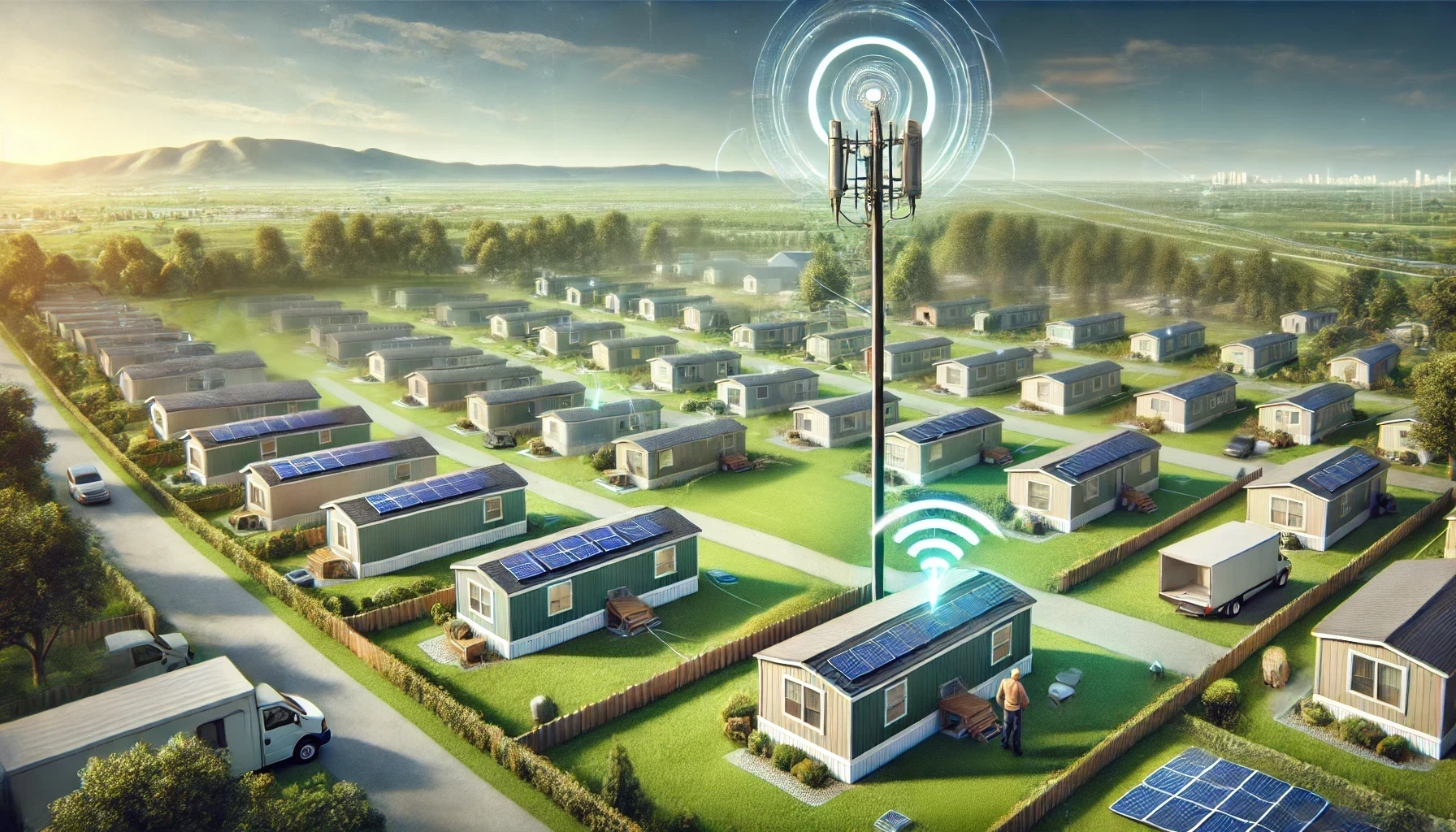Optimizing AMR Systems for Mobile Home Parks
Mobile home parks present unique challenges and opportunities for property managers, especially when it comes to managing utilities. The integration of Automated Meter Reading (AMR) systems can significantly enhance efficiency and reliability in data collection. However, understanding the intricacies of signal strength and customizing these systems to meet the specific needs of mobile home parks is paramount to achieving optimal results.
Understanding the Unique Challenges of Mobile Home Parks
Mobile home parks present unique challenges for property managers, especially when managing utilities. The dispersed layout and the distribution of homes create difficulties for traditional Automated Meter Reading (AMR) systems. Here are some specific challenges faced:
- Common Area Locations: Traditional AMR systems rely on repeaters to transmit meter readings. The necessity for a greater number of repeaters, combined with their requirement for indoor installation, creates significant hurdles. This combination can make adopting an AMR system challenging and, in some cases, impractical.
- Dispersed Layout: The spacing between homes in mobile home parks is often greater than in traditional apartment complexes, which can lead to communication gaps and hinder effective data collection.
- Outdoor Equipment: Metering equipment is typically installed outdoors, but many traditional AMR systems are rated for indoor use only and cannot withstand outdoor conditions. This limitation can pose significant issues in the field, necessitating robust solutions.
To illustrate, consider signal strength as a sports field: just as defined areas of play dictate where a game can occur, signal strength determines the operational effectiveness of AMR systems. Greater coverage leads to fewer "blind spots" where data readings may be missed.

Key Technologies for Optimizing AMR Systems
To effectively address the challenges of layout and connectivity, it is essential to implement tailored AMR solutions. Leveraging advanced technologies and strategies can significantly enhance signal strength and system reliability. Among the most effective solutions are:
- Submersible Meter Data Transmitters (MDTs): Designed specifically for outdoor conditions, these devices offer an IP68 rating, allowing them to perform reliably in various environmental factors. Their robust design avoids the pitfalls associated with using indoor-rated equipment in outdoor settings.
For further insights into how outdoor-rated equipment like Submersible Meter Data Transmitters (MDTs) can enhance utility management, check out our post ‘7 Essential Tips for Choosing a Water Utility Submetering Solution’. - Solar-Powered Repeaters: Integrating solar-powered repeaters into the AMR system can greatly expand signal coverage. These repeaters facilitate effective data communication over larger areas and ensure consistent readings without the reliance on extensive electrical infrastructure. Notably, our solar-powered MAX Range repeaters offer a 100:1 coverage ratio, meaning only one repeater is needed for every 100 units, unlike other AMR systems that require one repeater for every 25 units.
To see how solar-powered repeaters can effectively improve data communication in real-world applications, read our ‘Guardian Water & Power Case Study,’ which highlights successful implementations in mobile home parks.
By focusing on these technologies and their efficient placement, property managers can optimize their utility management practices and ensure consistent, accurate data collection.
Best Practices for Property Managers
To further enhance the efficiency of AMR systems in mobile home parks, property managers should consider implementing several best practices:
- Optimizing Placement of Equipment: The strategic placement of meters and solar-powered repeaters is crucial. Ensuring that these devices are installed in locations with minimal interference and maximum exposure to open space can greatly improve signal strength.
- Regular Maintenance: Routine maintenance checks are vital to ensure the longevity and operational effectiveness of the AMR systems. This includes inspecting MDTs and repeaters to ensure they operate correctly and replacing any components as needed.
- Data Utilization: Leveraging the data collected through AMR systems can provide property managers with critical insights. Understanding usage patterns can help in making informed decisions about energy conservation and utility management, ultimately leading to operational efficiencies and cost savings for both property managers and residents.
Conclusion
Integrating an optimized AMR system tailored for mobile home parks not only addresses the challenges of signal strength but also enhances overall efficiency in utility management. By utilizing advanced technologies, adopting best practices, and understanding the unique needs of mobile home parks, property managers can significantly improve data accuracy and reliability.Engage with Us
Have Questions? Contact us for expert advice.
Join the Conversation: Follow us on LinkedIn.
Thank you for visiting our site. We look forward to helping you optimize your utility management!
